Due to the unprecedented coronavirus pandemic, 2020 brought additional expenses to homeowners and community associations that were unpredictable in 2019. This presented a teachable moment for communities and homeowners. Whether you are a homeowner or board member working with your accountant and/or property manager, consider these tips when planning a budget.

Follow Us on Social Media:
What is a Budget?
The idea of a budget is to establish a comparison between the total revenue and total expenses so that expenses are equal to or less than the revenue. Setting a budget helps to manage finances as you try to plan for a year or for a designated period of time.
Setting a Budget for the Future
If we have learned anything from 2020, it is to expect the unexpected. When budget planning for the future, anticipate your home or community expenses based on the trends of the previous year, but also plan for surprise costs that may be caused by inflation rates, worker shortages, and unprecedented events. Remember that your budget’s total expenses should not exceed your revenue.
Examples of Expenses to Anticipate:
For Homeowners
- Over-the-counter medication in the event of a virus spike or illness.
- Sanitizing/cleaning supplies and services
- Personal protective equipment (PPE) and Testing Supplies
- Medical fees
- Wi-Fi increases or new technology and subscriptions for virtual learning or working from home
- Potential Increases or assessments from your community association
- New hobbies and interests as a result of the virus or lifestyle change.
- Exercise equipment and subscriptions (many people bought bikes and other fitness equipment in 2020)
- Therapy and emotional support
- Tutors for students (see our article on back-to-school plans and resources)
- Food and pantry items (budget for higher prices due to the pandemic)
- Holidays and gift-giving
- Moving and/or closing fees if you are planning to sell or buy a new home
- Inflation and shortages of supplies and raw materials
- Home maintenance supplies (i.e.- tools, seasonal items, etc.)
For Community Associations
- Sanitizing/cleaning supplies and services
- Personal protective equipment (PPE)
- Temporary employees/temporary employment of additional staff
- Extra staffing
- New insurance costs
- Additional legal fees
- WIFI increases or new technology and subscriptions
- Snow removal
- Misc. safety supplies (i.e.– plexiglass dividers)
- Natural disaster recovery
- Pool maintenance and costs of operating other common areas (including supplies)
- Costs for communication (talk to your property manager about cutting down on mailing costs with robocalls and email blasts)
- Anticipate cosmetic repairs or improvements if your community association if needed
- Inflation and shortages of supplies and raw materials
All future budgets should include an “unprecedented” expense category to plan for anything unplanned or have an emergency fund.
Examples of Expenses That Are Worth Avoiding:
For Homeowners
- Homeowners can skip a (completely avoidable) pesky winter expense: How to Avoid Frozen Pipes.
- Violation fees for not adhering to community policies and procedures.
- Late fees. Consider ACH, automatic billing scheduled through your bank account, or ClickPay. We offer several payment options.
- Review your governing documents to see what violations, if any are subject to a fine in your community association, and then avoid those violations.
- Subscriptions for services that you no longer use or need (i.e.- anything that you may have signed up for in 2020 but no longer have a use for).
For Community Associations
- Do not postpone or ignore important projects that will ultimately result in higher costs if they are put off.
- Legal fees: Consult your community association’s attorney for advice on how to limit liability during the coronavirus pandemic and beyond.
Mortgage Refinancing
For many individuals and communities, 2020 was a great time to refinance due to the low-interest fees. The key takeaway was the importance of paying attention to interest rates as they can fluctuate based on market and economic trends.
Seek Professional Advice
Our lists of examples include just some of the items you may need to budget for in 2021 and beyond. These are based on some of the trends we have seen in 2020, but our lists are not exhaustive. If you are not sure how to plan, or you are planning a budget for your community association, seek professional advice from an accountant or financial advisor.
See Also:
- Einsidler Management, Inc. weighs in on the topic of Co-ops Refinancing with Habitat Magazine: “It’s a Great Time for Co-ops to Refinance, If…”
- We weigh in on how coronavirus has impacted the financial matters of operating and maintaining a community association in Habitat Magazine’s “Management on the frontlines”.

